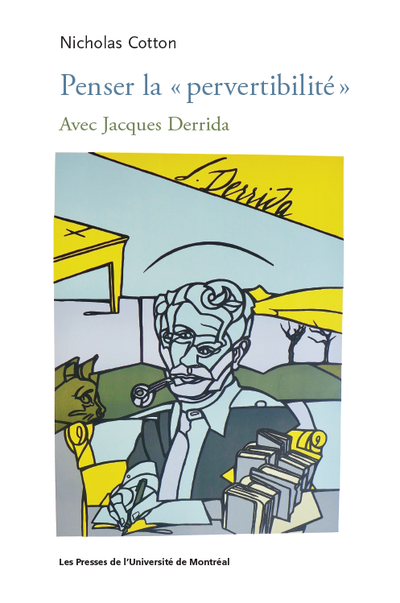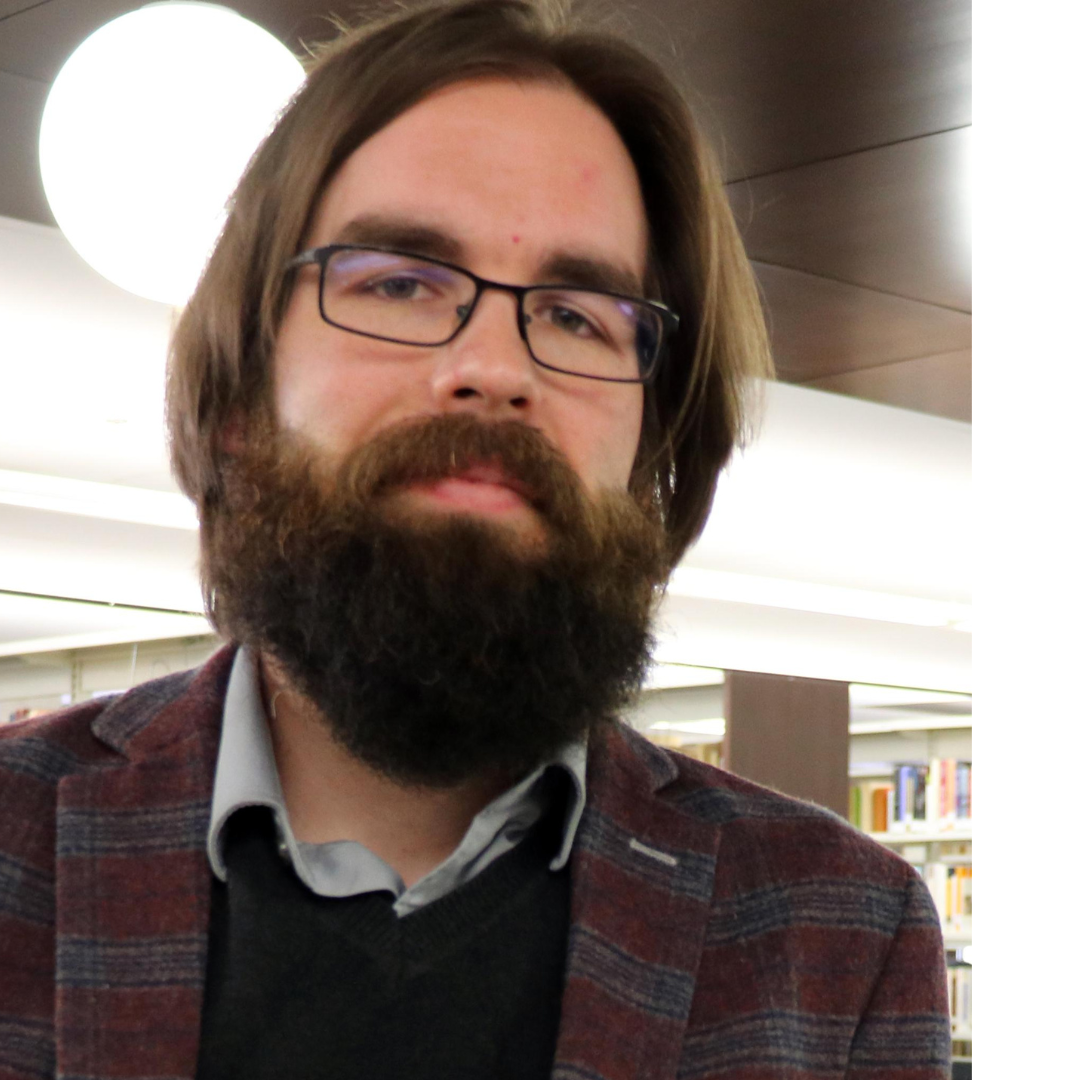About the author | About the book | Author's notes
"Initially, I was mainly interested in the literary nineteenth century, and I wanted to work on Baudelaire and his borrowings from the American writer Edgar Allan Poe, including the notion of perversity, which had nothing to do with what is generally understood by this word in commong language, which intrigued me greatly."
About the author
Nicholas Cotton is a teacher-researcher at Collège Édouard-Montpetit (Longueuil, Canada). He is the author of Penser la “pervertibilité” - Avec Jacques Derrida (PUM, 2023) and a member of the international committee responsible for publishing Derrida's seminars, including the two volumes of Le parjure et le pardon and Répondre - du secret (Seuil). He is an active member of the Bibliothèques et Archives nationales du Québec (BAnQ) users' committee and co-hosts the podcast Mythes de rien.

About the book
Can we even think of an ethics of perversion? Everything about this question is problematic, starting with the word “perversion” itself, which opens up a murky semantic space with uncertain boundaries. The idea of “pervertibility”, revived here in the wake of the philosopher Jacques Derrida, could well thwart these equivocations.
At the confluence of literature, philosophy and psychoanalysis, this book sets out to show the importance of this notion for Jacques Derrida, and to trace the moments that constitute a kind of unthought. To this end, the author undertakes a close-up investigation of the philosopher's texts and thought, supported by a multidisciplinary approach that allows us to identify its evolution in the second half of the 20th century, while respecting the complexity and inventiveness of what is known as “deconstruction”. By putting forward a renewed conception of the literary text, this book does not seek to glorify the supposedly subversive properties of literature, but it does contribute to a better understanding of the “perverse” devices of philosophical thought and the concrete gestures of writing.
The idea of working on Derrida's work surely goes back to the time when I was writing my master's thesis. Initially, I was mainly interested in the literary nineteenth century, and I wanted to work on Baudelaire and his borrowings from the American writer Edgar Allan Poe, including the notion of perversity, which had nothing to do with what is generally understood by this word in common language, which intrigued me greatly. As an undergraduate in philosophy and literature, I had come across Jacques Derrida's work on several occasions, and through the sometimes quite different lenses of these two disciplines. A memorable course devoted exclusively to Derrida, with Ginette Michaud, who would eventually become my thesis supervisor, convinced me that whatever the subject of my dissertation, the approach had to be "deconstructive.” So I followed my initial idea, but crossed it with a Derridean reading of Baudelaire's works, which also enabled me to pursue a multidisciplinary approach. The idea of working more specifically on "pervertibility" came from the limits of my dissertation. On the one hand, the further along I got in this process, the more I noticed that the terms, expressions, etc. linked to what we call "perversion" or "perversity" or "pervert" betrayed a very blurred and very subjective limit in each author or thinker I came into contact with, and that the spectrum, let's say moral, of what they considered as such was very broad. On the other hand, my dissertation ended on a broader set of questions than it answered, partly because Derrida in the texts I had read at the time did not seem to have a unified idea of what he himself meant by "pervertibility". For my dissertation, I therefore took on the colossal task of combing through the whole of this philosopher's work (over 80 titles) in order to answer these questions. The book I have published with PUM is the culmination of this process, which was largely inspired by my thesis.
In all humility, I believe that my book provides a better understanding of Jacques Derrida's thought and style, and of how they evolved in the second half of the twentieth century. It makes a substantial contribution to current work in literature and philosophy, the fields of knowledge and practice to which it primarily belongs, but also in psychoanalysis and, more generally, to the history of ideas. This investigation offers a number of critical tools for better grasping complex texts and writing devices that contribute to the meaning of demanding works such as those by Derrida, but also by Baudelaire, Blanchot, Cixous, Deleuze, Foucault, Freud, Genet, Joyce, Kristeva, Lacan, Kafka, Lyotard, Plato, Poe, Ponge, Proust, Sade, Sollers and Rousseau (to name but a few). Ultimately, I can think of two main reasons why this subject and this book are so important. Firstly, it is the first book to highlight the problematic of Derrida's "pervertibility", taking a cross-sectional look at his corpus, archives, unpublished seminars and virtually all critical works on the philosopher in French and English. Secondly, this book is one of the few texts to show Derrida's literary writing, making him not just a philosopher, but a "writer”. In short, it provides an insight into the relationship between philosophy and literature from the specific perspective of deconstruction.
It's important to understand that deconstruction in general, and Derrida in particular, are often wrongly held to be iconoclastic, nihilistic or even dangerous, as recent polemics (January 2022) attest. In this book, I undertake to patiently dismantle these presuppositions and demonstrate that deconstruction is a necessary, affirmative, benevolent and inventive approach that, on the contrary, allows us to question our certainties without nullifying them or making them pathetic. At a time of "wokism" (or whatever it's called for various reasons), "fake news" and the breakdown of the notion of identity, Derrida's thought and deconstruction as a critical approach are more than necessary to avoid the pitfalls of ideology and better understand new approaches in the human sciences. My book can be seen as an honest effort to make this complex and nuanced thought accessible, while reinscribing it in a history and practice of textuality.

